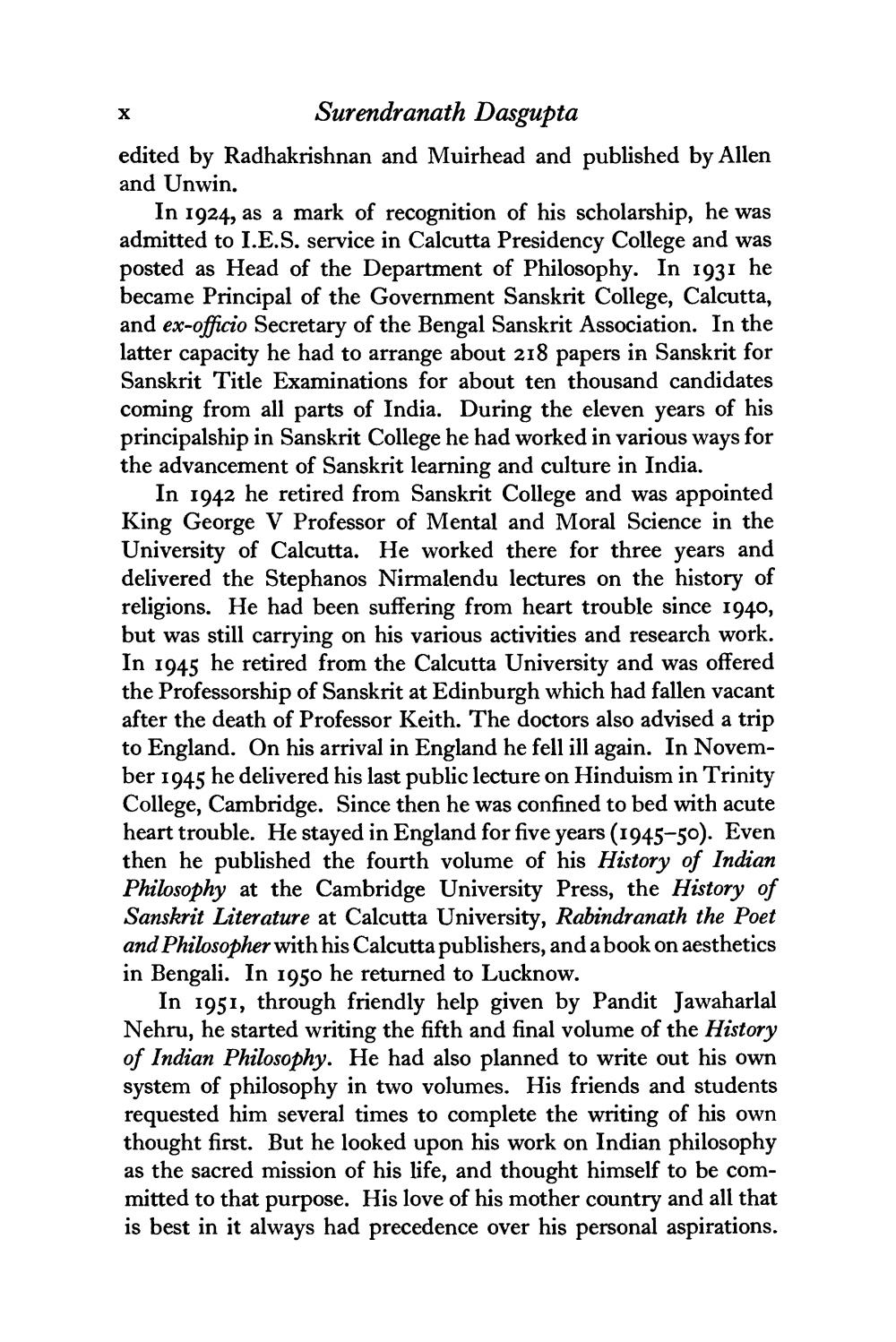________________
Surendranath Dasgupta edited by Radhakrishnan and Muirhead and published by Allen and Unwin.
In 1924, as a mark of recognition of his scholarship, he was admitted to I.E.S. service in Calcutta Presidency College and was posted as Head of the Department of Philosophy. In 1931 he became Principal of the Government Sanskrit College, Calcutta, and ex-officio Secretary of the Bengal Sanskrit Association. In the latter capacity he had to arrange about 218 papers in Sanskrit for Sanskrit Title Examinations for about ten thousand candidates coming from all parts of India. During the eleven years of his principalship in Sanskrit College he had worked in various ways for the advancement of Sanskrit learning and culture in India.
In 1942 he retired from Sanskrit College and was appointed King George V Professor of Mental and Moral Science in the University of Calcutta. He worked there for three years and delivered the Stephanos Nirmalendu lectures on the history of religions. He had been suffering from heart trouble since 1940, but was still carrying on his various activities and research work. In 1945 he retired from the Calcutta University and was offered the Professorship of Sanskrit at Edinburgh which had fallen vacant after the death of Professor Keith. The doctors also advised a trip to England. On his arrival in England he fell ill again. In November 1945 he delivered his last public lecture on Hinduism in Trinity College, Cambridge. Since then he was confined to bed with acute heart trouble. He stayed in England for five years (1945-50). Even then he published the fourth volume of his History of Indian Philosophy at the Cambridge University Press, the History of Sanskrit Literature at Calcutta University, Rabindranath the Poet and Philosopher with his Calcutta publishers, and a book on aesthetics in Bengali. In 1950 he returned to Lucknow.
In 1951, through friendly help given by Pandit Jawaharlal Nehru, he started writing the fifth and final volume of the History of Indian Philosophy. He had also planned to write out his own system of philosophy in two volumes. His friends and students requested him several times to complete the writing of his own thought first. But he looked upon his work on Indian philosophy as the sacred mission of his life, and thought himself to be committed to that purpose. His love of his mother country and all that is best in it always had precedence over his personal aspirations.




